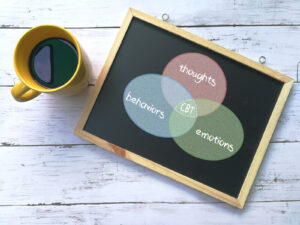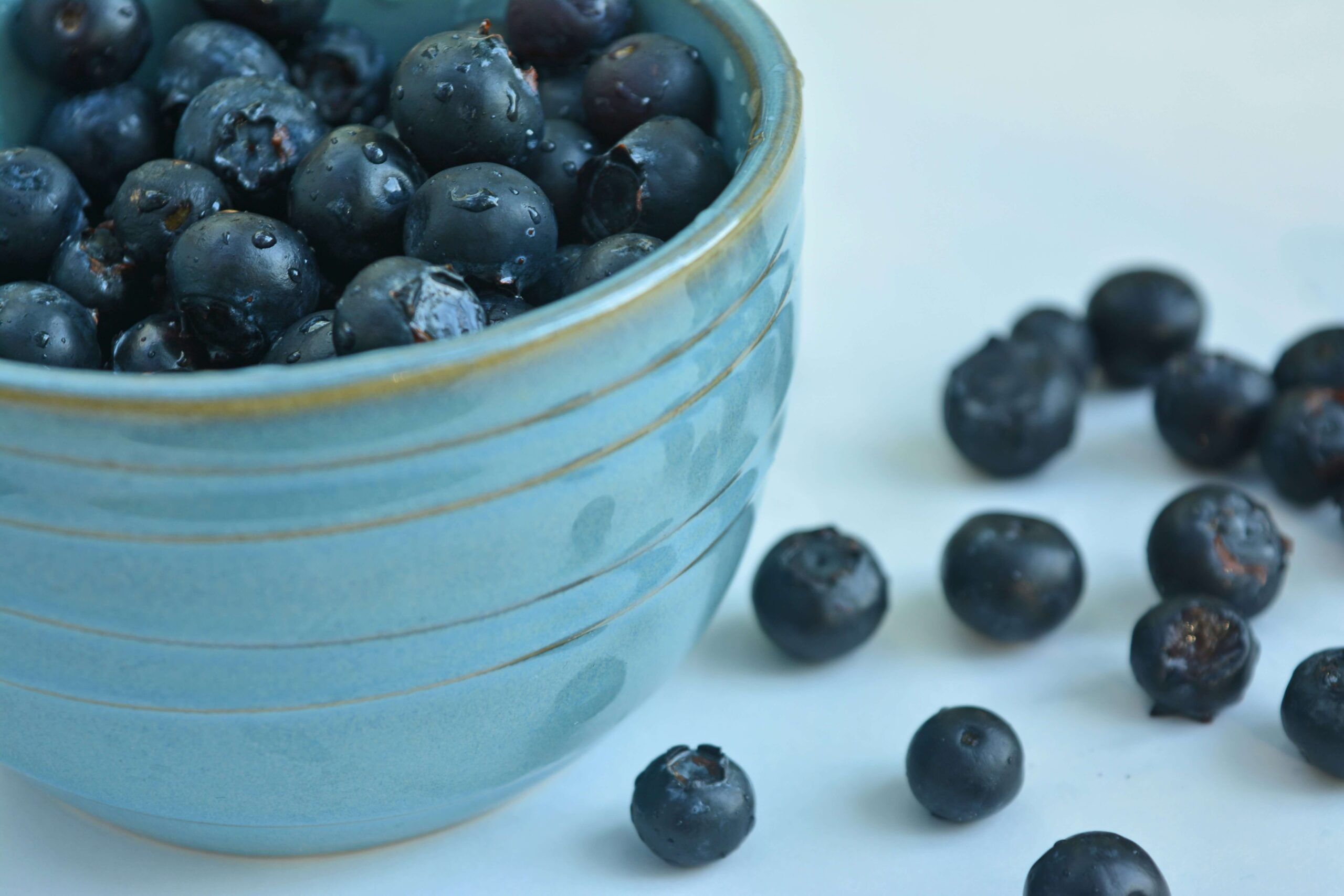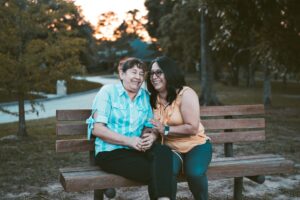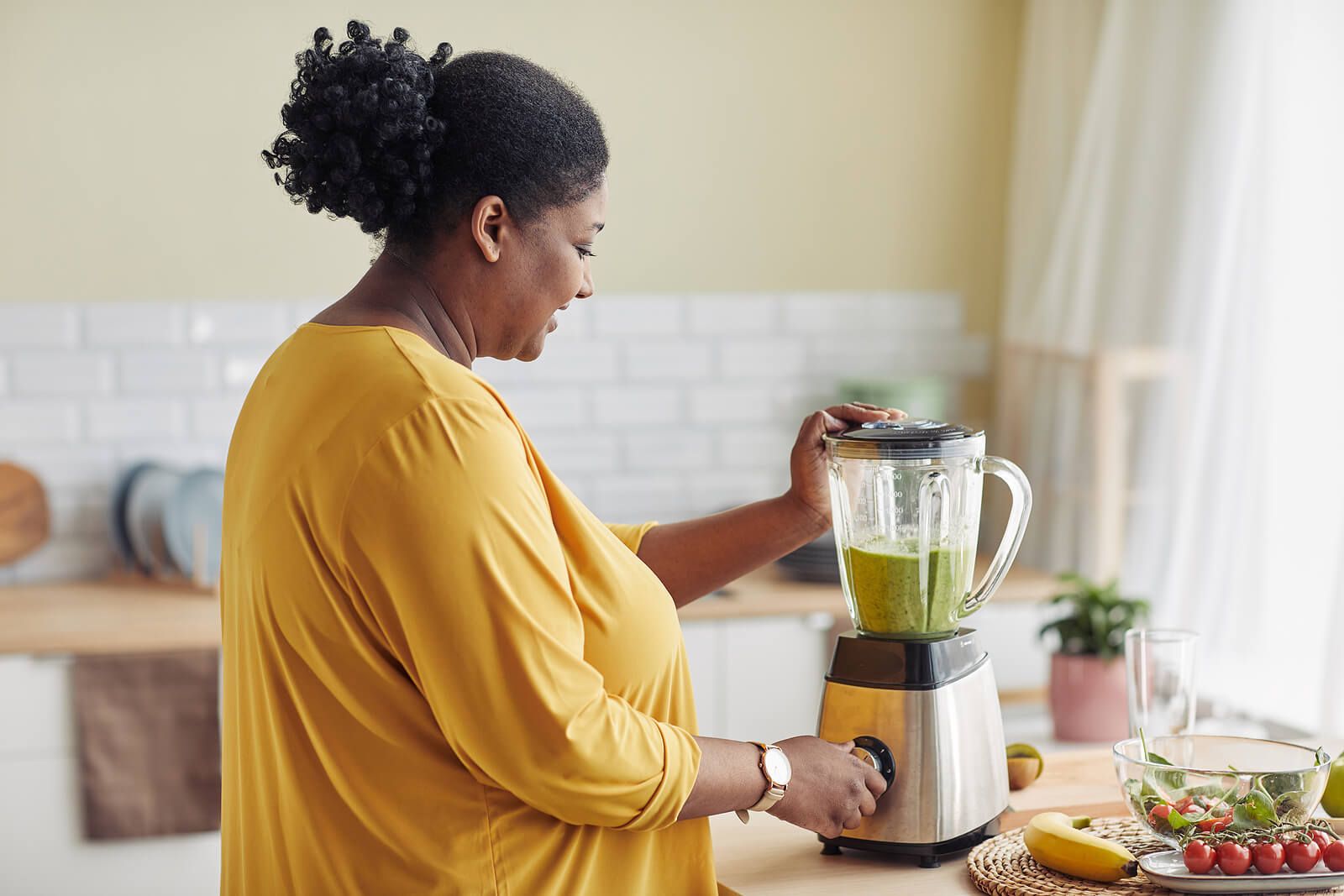Eating disorders are complex and deeply rooted in both our minds and our bodies. They can significantly impact how you view yourself, how you eat, and how you relate to food. Navigating these challenges may seem overwhelming, but nutrition counseling can be an essential step toward recovery. By approaching your health from a holistic perspective, nutrition counseling in Asheville, NC works to support your well-being, helps you develop a healthier relationship with food, and moves you toward a balanced approach to nourishment.
At Nutritious Thoughts, we know that nutrition therapy is a journey—one that requires time, patience, and compassionate support. Our team focuses on a relational approach, meaning we aim to understand your unique experiences, medical history, and hopes for a healthier future. It’s not about quick fixes or following strict diets; it’s about finding what feels right for you. Below, we explore the role of nutrition counseling in the treatment of eating disorders and how it can support you or a loved one on the path to recovery.
What Specialist Treats Eating Disorders?
Treating eating disorders requires a team of specialized professionals, each playing a unique role in supporting different aspects of recovery. The specialists involved often include a therapist, a registered dietitian (RD), and a medical doctor (MD). Therapists or counselors are typically the mental health professionals who focus on the psychological aspects of the eating disorder. They work to identify underlying emotional triggers, unpack negative self-beliefs, and develop healthier coping mechanisms. In eating disorder recovery, it’s common to explore areas like self-esteem, anxiety, and body image. Working with a therapist can help make sense of these emotional pieces and build strategies to move forward in recovery.
Registered Dietitians, like those at Nutritious Thoughts, provide nutrition counseling that addresses the physical and behavioral components of disordered eating. This includes exploring food behaviors, dietary patterns, and body cues, as well as helping to rebuild a healthier relationship with eating. Dietitians offer education, support, and guidance, with an emphasis on finding balance in how you nourish yourself, both physically and emotionally. Medical doctors ensure that your body is safe and stable throughout the treatment process. An MD, whether it’s a primary care physician, pediatrician, or psychiatrist, will monitor physical health, manage any medical complications, and collaborate with the other team members to support your well-being.
By working together, this team provides holistic care, focusing on the biological, psychological, and nutritional aspects of the eating disorder to help you heal from all angles.

Can a Dietitian Help with an Eating Disorder?
Absolutely! Dietitians are a key part of the recovery team, offering specialized support for those navigating eating disorders. But unlike the common misconception, they’re not there to tell you what to eat or hand you a rigid meal plan. Instead, dietitians trained in eating disorders focus on meeting you where you are—understanding your experiences with food, body image, and self-care. It’s about listening to your story and walking alongside you as you explore what nourishment looks like for your unique situation. In the treatment of eating disorders, the dietitian will help remove the fear, anxiety, or confusion that often accompanies food and eating. Whether it’s restrictive eating, binge eating, or a constant cycle of guilt and shame around food, it’s easy to lose trust in your body and its signals.
A dietitian’s role is to help untangle these food behaviors, bringing clarity and understanding to the complex relationship between what you eat, how you feel, and how you care for yourself. For instance, if you struggle with food rules or fear certain types of food, a dietitian can help you gently challenge those fears. If you feel disconnected from hunger and fullness cues, your sessions can focus on rediscovering and listening to those body signals. Nutrition counseling is not just about addressing “what” you eat but exploring “why” you eat the way you do, and finding a path that supports your body’s health and emotional well-being.
Do Dietitians Help with Mental Health?
While dietitians are not mental health therapists, their role in supporting mental well-being is significant and often deeply connected to your relationship with food. Disordered eating is rarely just about what you eat; it’s tied to thoughts, emotions, and past experiences, which means healing also requires working through these underlying mental and emotional aspects. Dietitians practicing relational care offer a safe, non-judgmental space to explore how your emotions, stress, and life experiences shape your eating behaviors.
For example, during sessions, you might discuss how stress impacts your appetite, how certain foods trigger anxiety or guilt, or how emotional eating shows up in your life. A dietitian will guide you through understanding these patterns and developing strategies that honor your needs, such as incorporating mindful eating practices, fostering self-compassion, or finding alternative ways to respond to emotions that don’t involve food.
Dietitians also Recognize that Nutrition Plays a Role in Mental Health Itself.
What you eat can affect your mood, energy levels, and ability to cope with daily stressors. By helping you identify balanced eating patterns, a dietitian can support your emotional regulation and mental clarity. For those struggling with anxiety, they might suggest routines that stabilize blood sugar to prevent mood swings or help identify any nutritional deficiencies impacting your mental well-being. The ultimate goal is to create a positive shift in how you view both food and body, fostering a holistic sense of health that addresses both physical and emotional needs. Through this balanced approach, dietitians empower you to nurture both your body and mind, helping you build resilience, understanding, and peace in your relationship with yourself.
How Can You Recover from an Eating Disorder?
Recovery from an eating disorder is deeply personal, and there’s no one-size-fits-all solution. Healing takes time, and the path forward isn’t always straightforward—but with the right support, it’s entirely possible to find peace with food and reconnect with your body. Building a compassionate care team, addressing both the emotional and physical aspects of your relationship with food, and practicing self-compassion are key components of the recovery process. One of the most important parts of recovery is relearning how to trust your body’s natural signals. Eating disorders can disrupt your sense of hunger, fullness, and satisfaction, making it hard to listen to what your body truly needs.
This process takes patience, but working with a registered dietitian can help you establish gentle, supportive eating patterns that align with your body’s needs. The goal is to create a rhythm that leaves you feeling nourished, energized, and satisfied—without the restrictive rules or binge cycles. Addressing compensatory behaviors is also an essential part of recovery. Behaviors like purging, over-exercising, or other methods of trying to “compensate” for eating are common in eating disorders, but they don’t serve your long-term well-being. Together with your dietitian, you’ll explore more compassionate ways to manage stress, anxiety, and feelings of control. The focus is on building a relationship with food and your body that feels intuitive, balanced, and free from judgment.
Therapy is Another Crucial Piece of Recovery.
Whether through Cognitive Behavioral Therapy (CBT), Dialectical Behavior Therapy (DBT), or another therapeutic modality, your work with a therapist is centered on exploring how thoughts and feelings impact behaviors. Understanding the root causes of disordered eating and learning to cope with stress and emotions in healthy ways all play a part in recovery. The path to recovery is unique for each person, and it’s okay to go at your own pace. What’s most important is finding a supportive environment and compassionate professionals who can guide you on this journey, one step at a time.
What Are Some Treatments for Eating Disorders?
Treatment for eating disorders often involves a multidisciplinary approach, addressing the physical, emotional, and behavioral components. Some of the most common treatments include:
Nutrition Counseling
Nutrition counseling is a foundational part of eating disorder treatment, offering tailored support that focuses on restoring a balanced and peaceful relationship with food. A registered dietitian, particularly one trained in eating disorders, works to understand your personal history, current eating patterns, and the emotions tied to your experience with food and body image. Sessions are designed to be a judgment-free space where you can explore your thoughts, beliefs, and concerns around food without the pressure to adhere to rigid diets or meal plans. For example, if you struggle with labeling foods as “good” or “bad,” your dietitian may guide you in learning to see food from a more neutral perspective.
This process may involve slowly reintroducing foods that have been restricted due to fear, anxiety, or guilt, and finding ways to approach eating with mindfulness and flexibility. If social situations around food are stressful, nutrition counseling may focus on building skills to navigate these moments with confidence and self-compassion. Nutrition counseling is not about restriction or quick fixes—it’s about learning to nourish yourself in a way that respects your body’s needs, hunger cues, and emotional well-being. The aim is to develop sustainable and supportive habits that honor who you are as a person, not just what’s on your plate.
Therapy and Counseling
Therapy is a core element of treating eating disorders, addressing the thoughts, feelings, and behaviors tied to disordered eating. Because everyone’s journey is unique, various forms of therapy are used, each offering different tools to support recovery.
Cognitive Behavioral Therapy (CBT) helps you identify patterns of negative thinking related to food, body image, and self-worth. For instance, if you find yourself thinking “I’m not allowed to eat this because it will make me gain weight,” CBT helps challenge and reframe these thoughts to promote healthier and more balanced beliefs. 
Dialectical Behavior Therapy (DBT) is often useful for those who experience intense emotions or impulsive eating behaviors. A person who turns to food for comfort during overwhelming emotions may find DBT helpful in learning ways to manage these feelings without turning to disordered eating habits.
Acceptance and Commitment Therapy (ACT) teaches you to acknowledge your thoughts and feelings without judgment. Instead of trying to fight or “fix” every thought about body image or food, ACT helps you build a compassionate response to these thoughts, focusing on aligning your actions with your values, such as self-care and kindness.
Through these therapeutic approaches, you’ll build emotional regulation skills, learn to manage stressors without relying on disordered eating behaviors, and work on improving body acceptance. The relationship you build with your therapist becomes a supportive space where healing and self-discovery are prioritized, empowering you to reclaim a healthier, more loving relationship with yourself.
Medical Support and Monitoring
Medical support is an essential part of treating eating disorders, especially when the disorder has severely affected your physical health. Regular check-ups and monitoring from a medical doctor ensure that your body is safe and stable throughout the recovery process. Eating disorders can have serious physical consequences, affecting cardiovascular health, nutrient absorption, bone density, and more, which is why medical oversight is necessary to prevent complications and support your overall health.
Imagine someone recovering from anorexia nervosa who is struggling to gain weight and restore health. A doctor may need to monitor vital signs, bone health, and electrolyte levels to ensure the body is responding safely to increased nutrition. The doctor works collaboratively with the dietitian and therapist, communicating regularly to ensure that both physical and emotional aspects of care are being addressed. Medical monitoring is not just about numbers on a chart—it’s about ensuring that your recovery journey supports your whole body. Through compassionate care and coordinated support, the medical provider on a treatment team ensures that your body is treated with the respect and attention it needs to heal.
Support Groups
Support groups offer a powerful space for those in recovery to connect, share, and find encouragement from others who understand what they’re going through. The experience of hearing someone else’s journey—whether it’s overcoming fear foods, dealing with body image struggles, or learning to embrace self-compassion—can be deeply validating and provide a sense of hope. Recovery can sometimes feel isolating, and support groups foster community, reminding you that you are not alone. For example, someone who finds it hard to talk openly about their struggles with food may find it comforting to hear similar experiences in a group setting.
The shared understanding can make it easier to be vulnerable and explore emotions that may be challenging to address one-on-one. Group sessions vary in focus—some may be centered on body image, developing self-compassion, or learning practical coping skills for handling daily challenges. This community approach allows for collective learning and provides a nurturing environment to explore personal experiences while receiving support and encouragement from those who truly understand. Support groups serve as a reminder that recovery is not something you have to face alone—there is a community of people walking the journey with you.
What Kind of Therapy is Best for Eating Disorders?
While many forms of therapy can be effective, the best type often depends on your individual needs, preferences, and the specific eating disorder you’re facing. Cognitive Behavioral Therapy (CBT) is one of the most commonly used approaches and focuses on identifying and changing unhelpful thought patterns that drive disordered eating. Dialectical Behavior Therapy (DBT) is particularly useful for those who struggle with emotional regulation and impulsive behaviors, offering skills to cope with intense emotions.
Family-based treatment (FBT) is an approach often used for adolescents with eating disorders, involving the family in supporting the individual’s recovery and reestablishing healthy eating patterns. Acceptance and Commitment Therapy (ACT) emphasizes mindfulness, self-compassion, and aligning behaviors with personal values, helping to shift away from perfectionistic or critical thoughts about food and the body.
Choosing the right therapeutic approach is a collaborative process, and it’s essential to find what resonates with you and supports your unique recovery journey.
How Do You Treat Nutritional Disorders?
Treating nutritional disorders, including those related to eating disorders, requires both medical and nutritional intervention. A registered dietitian will work closely with you to develop a nutrition plan that addresses your body’s needs, whether that means restoring nutrient deficiencies, balancing meal patterns, or working toward a healthier relationship with eating. The focus of treatment is on supporting balanced nutrition that feels accessible and compassionate.
For those recovering from restrictive eating, this might involve reintroducing foods that have been avoided, ensuring that energy needs are met, and helping to rebuild confidence around eating a variety of foods. For those experiencing cycles of overeating or emotional eating and compensatory behaviors, the approach might focus on regular, balanced meals and learning to respond to hunger and fullness cues with self-awareness. It’s about finding what works for your body, understanding your unique needs, and working toward a relationship with food that feels sustainable and kind.

What is the First Goal of Nutrition Therapy for Patients with Anorexia Nervosa and Other Eating Disorders?
When working with individuals facing anorexia nervosa, the initial focus of nutrition therapy is on medical stabilization and ensuring the body’s basic nutritional needs are met. The restrictive nature of anorexia often leads to severe malnutrition, impacting both physical health and overall well-being. The immediate goal is to address any critical health risks—such as dehydration, electrolyte imbalances, or extreme weight loss—by reintroducing nourishment in a way that feels safe and manageable. This stage of recovery is about building trust between the body and nourishment, allowing for a gradual increase in food intake to restore balance.
For other eating disorders, such as bulimia nervosa or binge eating disorder, the first goal is still rooted in stabilization but with a focus on different behaviors. In bulimia, compensatory behaviors like purging, over-exercising, or fasting may be prioritized, aiming to reduce and possibly eliminate these cycles. In binge eating disorder, the goal may center around developing structured eating patterns that prevent the urge to binge while also working through the emotional and psychological ties to food. No matter the disorder, the focus remains on creating a nurturing relationship with food and moving away from behaviors when they no longer serve your well-being.
Throughout This Process, the Work is Not Just About Restoring Physical Health.
It’s about addressing the emotional and mental aspects that accompany these behaviors. Dietitians at Nutritious Thoughts collaborate closely with you to explore fear foods, challenge diet culture, and support you in rediscovering trust in your body’s signals—whether it’s hunger, fullness, or emotional needs. This gentle and compassionate approach ensures that each step is rooted in your comfort and readiness. Recovery from any eating disorder—whether it’s anorexia, bulimia, or binge eating disorder—is a journey of healing that doesn’t follow a straight line. It’s about learning to nourish your body in ways that honor your unique experiences and needs.
With the support of a registered dietitian, therapy, and medical care, you can begin to rebuild your relationship with food in a way that feels empowering and affirming. At Nutritious Thoughts, we believe in walking alongside you in this process, offering guidance, encouragement, and care at every stage of your recovery journey. Healing is not about reaching perfection—it’s about finding peace with food, your body, and yourself, one step at a time.
Begin Your Journey to Healing with Compassionate Nutrition Counseling in Asheville & Throughout NC
At Nutritious Thoughts, we believe that nutrition counseling is more than just food—it’s about finding peace with your body, developing self-care habits that uplift you, and rediscovering nourishment that feels authentic. Whether you’re on the path to recovery from an eating disorder, navigating a health condition, or seeking more balance in your relationship with food, our compassionate team is here to meet you where you are. With personalized, non-judgmental support, we offer both in-person sessions in Asheville, Hendersonville, Cary, and Raleigh, NC, and online options to fit your needs. Let’s take this step toward healing together and find what true nourishment means for you.
Additional Counseling Services at Nutritious Thoughts
At Nutritious Thoughts, our care extends beyond one-on-one counseling. Through our Community Wellness & Education services, we bring nutrition support to larger communities. Whether it’s on-site or virtual, we offer nutrition counseling, educational workshops, and tailored presentations for schools, workplaces, and recovery centers. Our goal is to provide practical tools for wellness that fit each community’s needs. Get in touch with us to learn more about our services and rates.
 Scripts & Strategies for Handling Food and Body Comments
Scripts & Strategies for Handling Food and Body Comments This Work Goes Beyond One BBQ or Beach Day
This Work Goes Beyond One BBQ or Beach Day

































